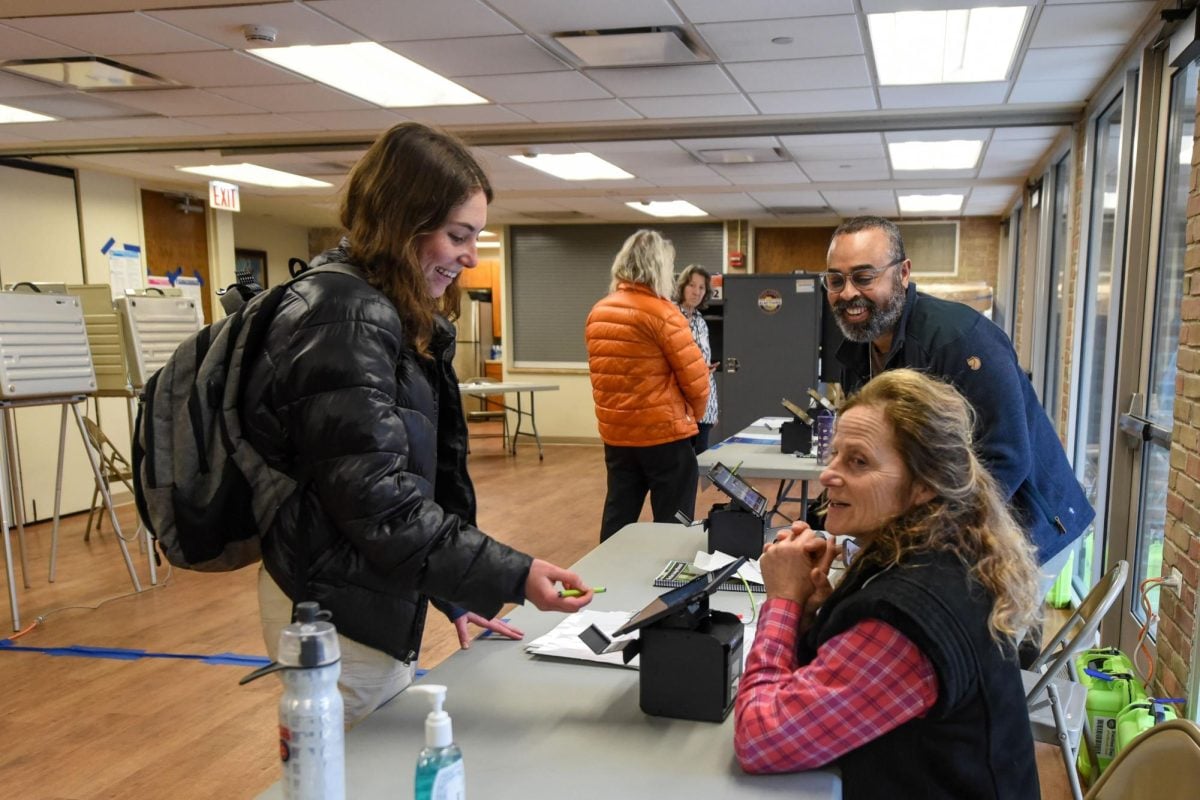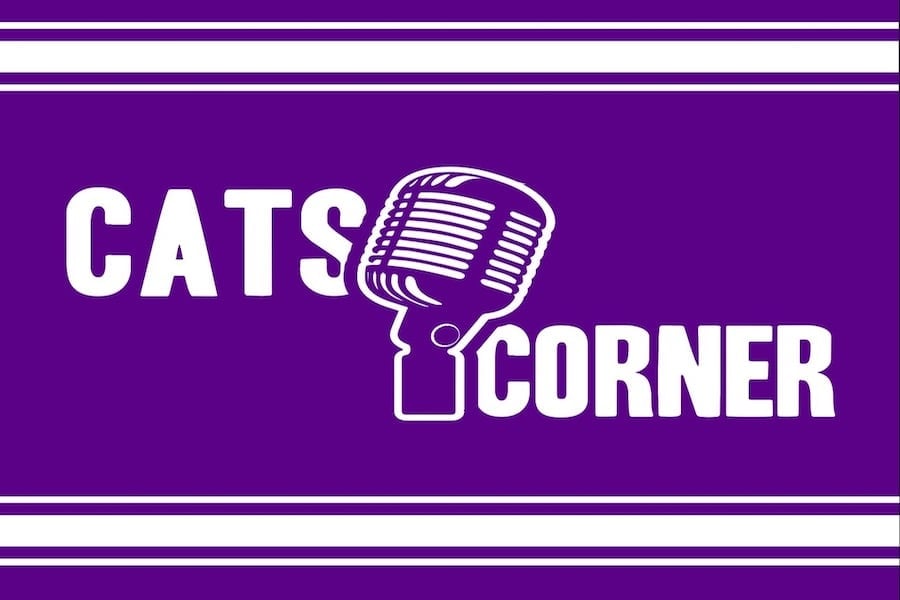 The economy has been in the news because of job growth, inflation, strikes and layoffs. See how fluctuating job markets are affecting Northwestern students as they look to begin their careers.
The economy has been in the news because of job growth, inflation, strikes and layoffs. See how fluctuating job markets are affecting Northwestern students as they look to begin their careers.
CHUCK TODD (NBC): So what is the current state of the U.S. economy? Well the data presents a complicated picture.
AMNA NAWAZ (PBS): The newest data suggests the U.S. economy is slowing down … at the same time the economy continues to defy predictions of an imminent recession.
THEO FRANCIS (WSJ): We’re seeing a really unusual situation where white collar workers, professionals, are being laid off in greater numbers relative to the rest of the workforce.
TYLER MATHISEN (CNBC): Big banks have been quietly cutting jobs and more layoffs could be coming.
LAURA SIMMONS: There are a lot of mixed signals in the economy. As one opinion piece in The New York Times described it, “The Vibes in the Economy Are … Weird. Really Weird.” Recent reports have shown a general trend of job recovery since the pandemic, but news of inflation, strikes and layoffs have made some people nervous.
From The Daily Northwestern, I’m Laura Simmons. This is NU Declassified, a look into how Wildcats thrive and survive at Northwestern. In this episode, we will be exploring how the economy is affecting Northwestern students’ career outlooks.
Weinberg junior Madeleine Williams interned at Morgan Stanley last summer. She received a return internship offer for this summer, but Williams is still unsure whether she’ll get a full-time offer after graduation.
MADELEINE WILLIAMS: I would give it like a 50-50. I am … I would say I’m very lucky that I was able to get in as a sophomore, meaning I have an extra summer to kind of figure things out. That doesn’t mean I necessarily have a better chance of getting an offer.
LAURA SIMMONS: Morgan Stanley usually invites nearly 90% of its pre-senior interns to come back full-time after graduation, according to Williams. But she said last summer, that number was down to about 70%. If she doesn’t get a return full-time offer after her junior internship this summer, she’ll be in a difficult position. In the competitive world of finance, applying for jobs the fall before entering the job market is often too late. Most finance application cycles happen a year and a half in advance.
MADELEINE WILLIAMS: It’s really just like, apply to anything that’s remotely similar to what I’ve done in the past, because at the end of the day, any job is better than no job.
LAURA SIMMONS: It’s not just undergrads who have been affected by broader market conditions. 2023 Medill graduate Elbert Xie had his start date at global consulting firm Kearney pushed back five months. He was supposed to start in October, but won’t begin until March.
ELBERT XIE: I should be worried that they’re going to push me even later. It’s kind of, more of a balance between how much I should really plan for the future and how much I should just enjoy my time now.
LAURA SIMMONS: Xie says consulting got hit harder than other industries because in an economic downturn, businesses are less likely to hire a consultant. Still, delayed starting dates are not unique to consulting.
ELBERT XIE: Across all industries, I feel like a lot of people are getting pushed back.
LAURA SIMMONS: Xie briefly considered going through the consulting recruitment process again but decided against it. He says he likes Kearney and he hates recruiting, which takes about a year in total. Fortunately, the company offered Xie a stipend along with an opportunity to work for a nonprofit.
ELBERT XIE: This helped me not waste my life away for six months. So I’m really grateful for this opportunity.
LAURA SIMMONS: But there are still success stories. Weinberg senior Maggie Carlson received a full-time offer after interning at Bank of America last summer. This came after the company had been on a hiring freeze.
MAGGIE CARLSON: It’s such a relief to have the internship return offer secured to go full-time because that’s where a lot of companies — they’re not hiring many people, especially when they have interns that flip to full-time.
LAURA SIMMONS: Carlson is grateful for her internship and now job offer, especially after facing disappointment in the past.
MAGGIE CARLSON: When it comes to applying for jobs, you kind of just need one person to say yes.
LAURA SIMMONS: Getting that one yes can take many different skills. Vice Chairman and Global Head of Investment Banking at Morgan Stanley Susie Huang shared skills for success at a Nov. 6 fireside chat hosted by The Women’s Network. Those skills include having an aptitude for numbers, attention to detail, ability to pivot, decision-making, public speaking and writing.
SUSIE HUANG: I think those are sort of not finance qualities, but just qualities that it takes to be good at a job: being reliable, doing what you say you’re gonna do.
LAURA SIMMONS: Huang also recommended finding a good mentor who knows the person well enough to give specific feedback. This feedback includes tiny tweaks that can alter how one is perceived.
SUSIE HUANG: I think getting blunt feedback is a gift. I give it all the time, and people don’t always like it. But I consider it an investment and a gift.
LAURA SIMMONS: Not everyone enters the job market right out of college. Huang talked about her experience going to law school, despite not being a practicing lawyer today.
SUSIE HUANG: I thought law school really taught me how to think in a very logical way … but I think the ability to break problems down into pieces and to know the right order for those pieces is a real, really, really important skill.
LAURA SIMMONS: Assistant Director of Student Career Advising Meg Flanagan said the already competitive market of finance and consulting is especially challenging now for students.
MEG FLANAGAN: There’s definitely a lot of anxiety about the future … and my goal is to really reassure them that it’s going to be okay, there’s no time like the present to kind of get started.
LAURA SIMMONS: Flanagan says Northwestern students are still finding opportunities, even if it isn’t their dream job right after college. But, she is optimistic about Northwestern students’ futures. Flanagan says she is continually amazed by students’ commitment and innovation.
MEG FLANAGAN: If you can communicate that to an employer and communicate your strengths, even in a down market, or with a lot of economic hesitations, there’s going to be opportunity out there for you … I really do think that our students are uniquely positioned to be really successful in their job search.
LAURA SIMMONS: From The Daily Northwestern, I’m Laura Simmons. This episode was reported and produced by me. The audio editors of The Daily Northwestern are Virginia Hunt and Lily Shen, the digital managing editors are Scott Hwang and Laura Simmons, and the editor-in-chief is Avani Kalra. Make sure to subscribe to The Daily Northwestern’s podcasts on Spotify, Apple Podcasts or SoundCloud to hear more episodes like this.
[music]
Email: laurasimmons2025@u.northwestern.edu
Twitter: @LauraS237
RELATED STORIES:
— ‘It’s not a light switch’: Evanston economy buckles amid COVID-19 recession
— How has COVID-19 impacted the economy? NU Prof. Stephen Nelson discusses
— The journalism to consulting pipeline: How Medill students use their skills in consulting
















